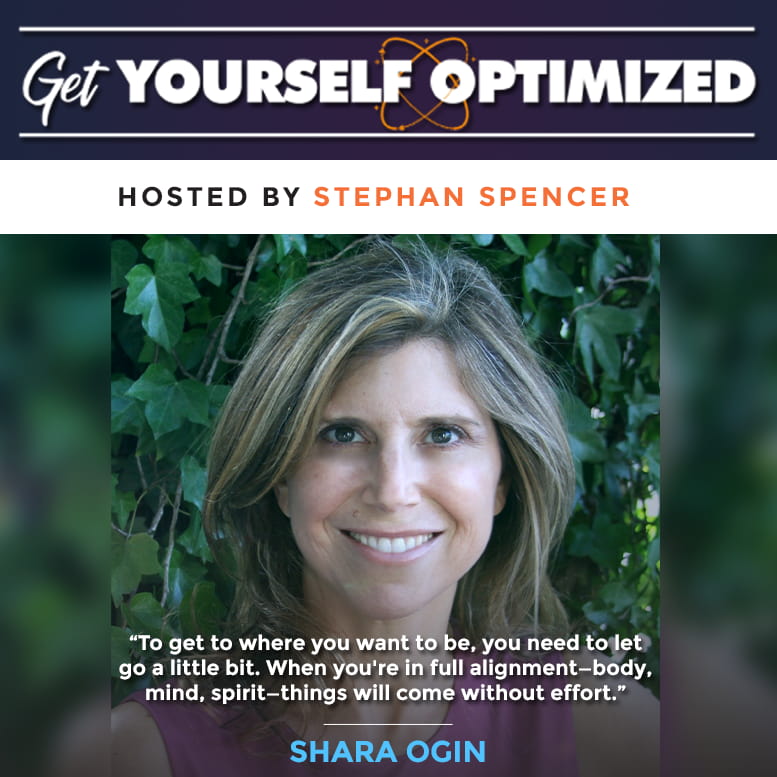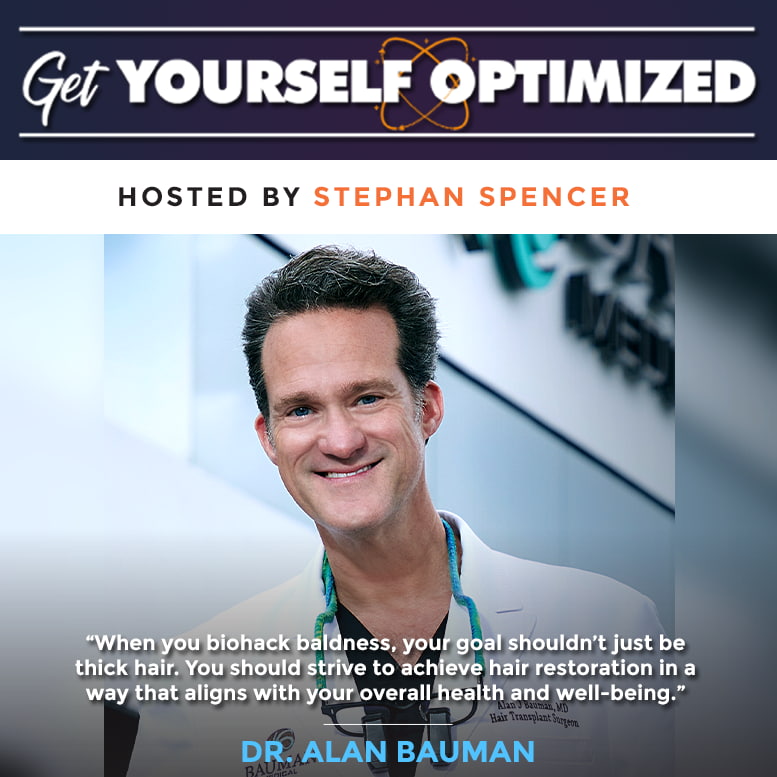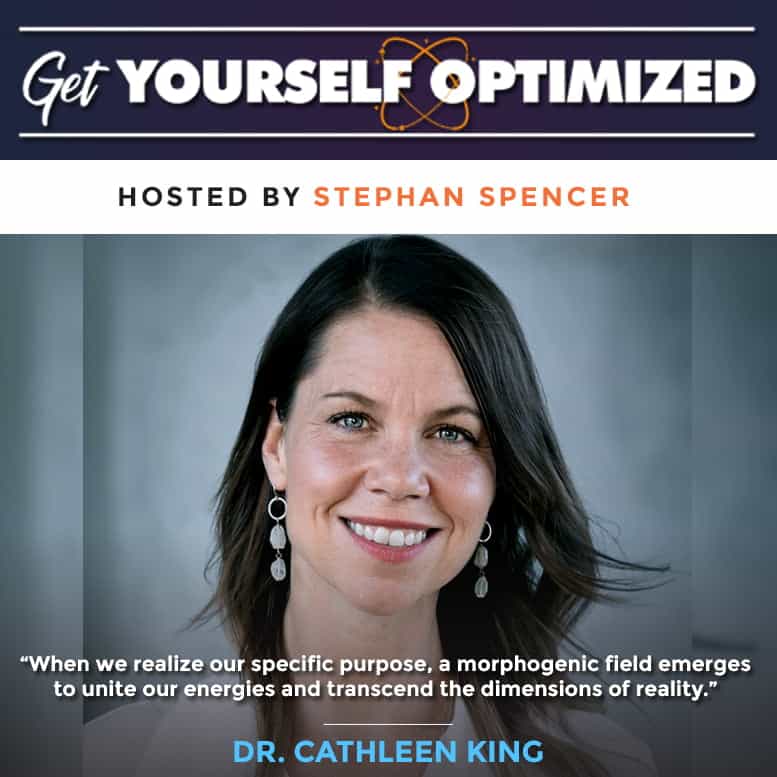In this Episode
- [02:52]Melanie talks about why she wrote her new book, especially given the fact that she already has a book about carnism. Stephan then explains how his and his wife’s differing dietary choices have created tension in the past.
- [04:40]What are Melanie’s top tips for someone in a situation where your partner has made different choices about their diet, specifically if one person is a vegetarian and the other isn’t? As she answers, Melanie also explains what carnism is.
- [06:39]Melanie coined the term “carnism” herself, she explains. She also explores her background in studying the topics surrounding the choice to eat meat.
- [10:11]How can you get through someone’s defense mechanisms regarding food, and effect change in their diets, without making them feel attacked, ashamed, or helpless?
- [13:46]Melanie shares some examples of carnistic defense mechanisms and cognitive biases from carnism that have infiltrated society. Stephan then reveals that ag-gag laws make it illegal to document what’s going on in factory farms, and Melanie points out that even photographing the outside of a factory farm from a distance can be enough to send you to prison.
- [17:32]Is it realistically possible to be outside the entire system of exploiting animal lives for our benefit? For example, even if we’re vegetarian, we may still wear leather belts or shoes. As she answers, Melanie brings up the idea of vegan allies, illustrating that even people who aren’t fully vegan can support vegan values and practices.
- [22:28]Melanie explains how Stephan, a pescaterian, is being a vegan ally simply by having her on this podcast.
- [23:16]Stephan explains that he was the last holdout in his family to become vegetarian.
- [24:42]Melanie recommends two of her videos for listeners interested in learning more about standard industry practices for various animal products: Toward Rational, Authentic Food Choices (her TEDx talk) and Why We Love Dogs, Eat Pigs, and Wear Cows (her short video). She then discusses some of these practices and explains that egg and dairy production tend to be just as brutal as meat production.
- [29:25]Stephan returns to a point Melanie has just mentioned: the health benefits of veganism. Melanie then recommends some resources: NutritionFacts.org, Dr. Michael Greger’s website and his book How Not to Die. She also offers suggestions on some ways to reduce your meat intake.
- [33:56]Stephan describes one of the prime examples in his life of seeing the general indoctrination into carnism.
- [35:18]Does Melanie have any examples of her own that she wants to share?
- [37:11]Melanie responds to Stephan’s description of what goes on in slaughterhouses by talking about how brutal the system is for the humans involved as well.
- [40:33]Melanie explains that everywhere she goes, veganism is mushrooming. She believes that the world is shifting in such a way that veganism will become the dominant dietary choice in the future.
- [41:58]What are some ways in which we can be part of the solution?
- [43:18] Melanie suggests some documentaries and movies for people who are interested in learning more.
- [44:12]Stephan shares a story to help listeners understand more about how to make a difference, especially if you have kids.
- [47:41]Melanie shares her perspective on whether animals have consciousness.
- [48:33]We return briefly to Melanie’s story of having a bad experience with contaminated meat.
Transcript
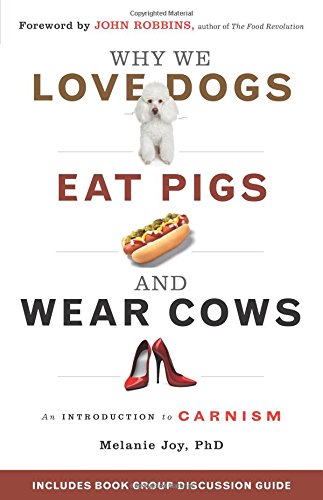
To my omnivore friends, aren’t you sick and tired of getting looked down upon by your holier than thou vegan friends? Hassling you for eating that juicy hamburger, treating you as if you are a sinner? Like they know more about your health than you do and that you did something terribly wrong. To my vegan friends, do you feel pained by those meat-eaters who don’t seem to even care about the planet or animal suffering? To my vegetarian friends, do you ever ask yourself, if I just eat eggs and not meat, is that okay? I work out. I need protein. Do you feel caught in the middle between warring factions? The good news is we can all be friends; omnivores, vegetarians, pescetarians, and vegans alike. In this episode, we’re going to learn how to make peace with each other, with our food and we’ll give you some food for thought.
There’s a new book coming out this year called Beyond Belief: How Vegans, Vegetarians, and Meat Eaters Can Strengthen Their Relationships and Improve Communication. It’s written by our guest, Dr. Melanie Joy. She’s also the author of the award-winning book, Why We Love Dogs, Eat Pigs, and Wear Cows. Dr. Joy is a Harvard educated psychologist, celebrated speaker, author, and recipient of the Institute of Jainology’s Ahimsa Award, which was previously awarded to Nelson Mandela and the Dalai Lama. She’s appeared on the BBC, ABC Australia, NPR, and in the New York Times. Her recent TEDx talk on carnism is in the top 1% of the most viewed TEDx talks of all time. She’s also the founder of the charity Beyond Carnism. Melanie, it’s great to have you on the show.
Hi, thanks so much for having me.
You have a new book coming out in August, Beyond BeliefHow Vegans, Vegetarians, and Meat Eaters Can Strengthen Their Relationships and Improve Communication. What spurred you to write that book, because you already have a book about carnism called Why We Love Dogs, Eat Pigs, and Wear Cows. What’s the difference between this new book and the previous book?
Why We Love Dogs, Eat Pigs, and Wear Cows is on the psychology of eating animals. The question is why do we love certain animals and eat others. That’s really to get people to examine their food choices and to become aware of the system that we’re born into that socializes us to make choices that for many of us, we might choose not to make, had we been more aware. My new book coming out, it includes the psychology of eating animals but it’s really as vegan and vegetarian movement is growing, more and more people are in these mixed inter ideological relationships and there is often a lot of misunderstanding and tension of the relationships. I wanted to write a book to help people navigate across these belief differences or ideological differences.
That’s important because like for me, I’m married to a meat-eater and I’m a vegetarian while I’ve turned pescetarian in the last few years during our relationship. It’s not as much of tension. We’ve worked on it but it’s certainly, in the early days, a problematic situation. I would say some cutting things sometimes and derogatory things and not be respectful of her choices. That created a lot of animosities so I had to learn how to navigate that. It’s pretty good now. I’m not perfect but it’s an interesting situation. What are your top tips for somebody in that kind of situation where your partner is not into the same kind of food as you? Let’s say one of you is a vegetarian, the other one is not.
It’s useful for people to actually understand the psychology of eating animals in the first place. My new books aren’t out yet but the bulk of my work, my organization, and my other writing is around carnism and the psychology and the system that we’re born into that conditions us to eat certain animals. Carnism, as I said, the invisible belief system or ideology that conditions us to eat certain animals. It becomes internalized. Just to give your listeners who aren’t familiar with this an idea of how carnism operates and what carnism is, it’s helpful to imagine that you’re a guest at a dinner party and your host serves you a beef stew. You ask your host for the recipe and she replies that the secret is in the meat and you need to use a well seasoned golden retriever. Now, most people’s reaction to this is an example of carnism. Carnism basically conditions us to block our natural empathy for the animals that we learned to think of as edible. It conditions us to distort our perceptions so that we see meat as food rather than as a dead animal. When we look at meat and we think that it’s a golden retriever, we can’t help but think that this is a dead animal and feel disgusted because we have a natural empathy for dogs, because we haven’t been conditioned to distort our perceptions and disconnect from this empathy. In inter ideological relationships, what happens is that carnism is this invisible intruder. It has a profound impact on the way that we think and feel about other animals, about our food choices, and also about each other as vegan and non-vegan or vegetarian and non-vegetarian.
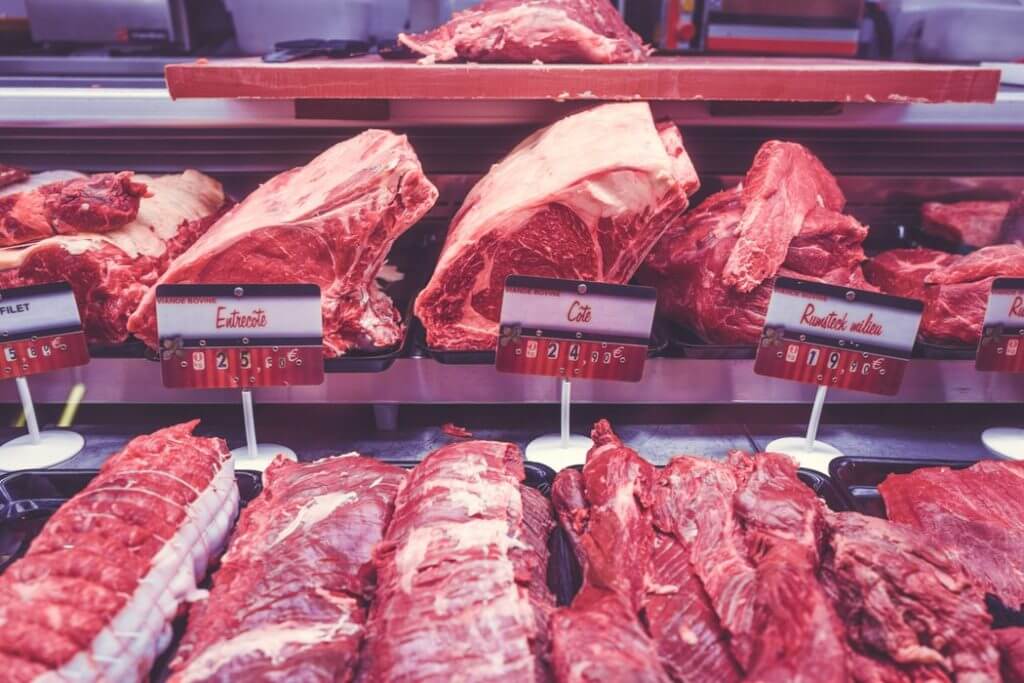
Interesting. Carnism is a term that existed prior to your first book, or is that something that you coined? Where did that come from?
Carnism is a term that I coined. I grew up, like many people, with a dog who I loved like a family member and I also grew up eating meat, and eggs, and dairy. I was the meat lover pizza girl. I used to eat a lot of meat at one point in my life. I grew up caring about animals. I certainly grew up not wanting animals to suffer, especially when that suffering was so intensive and so completely unnecessary. I didn’t make the connection when I was eating meat, eggs, and dairy between the food on my plate and the living being it once was. It wasn’t until I was 23 back in 1989, I ate a contaminated hamburger and wound up hospitalized, very sick from it. I stopped eating animals. I didn’t stop for the apparently moral convictions of the time, I was just disgusted. The last thing that you eat, you just never want to eat again when you’re that sick. I became curious about my new diet which at the time was vegetarianism and of course, as I was researching it and learning about vegetarianism, I learned about animal agriculture and what happens to the animals and the planet and human laborers. What I discovered shocked and horrified me. What shocked me in some ways, even more, was that nobody I talked to about this was willing to hear what I had to say. They will all just tell me, “Don’t tell me that, you’ll ruin my meal.” These were rational people like myself. I always prided myself on being a rational thinker and they were caring people like myself, and yet when it came to eating animals, they choose to, like I had, just stop thinking and feeling.
I became really curious about how rational, caring people could participate in irrational, unkind practices or harmful practices without realizing what they were doing. I eventually studied the psychology of violence and nonviolence. I wrote my doctoral dissertation in psychology on the psychology of eating meat. I interviewed meat eaters and meat cutter and butchers, people who would raise and till their own animals’ food and what I found was that everybody had the same experience either eating or working with animals where they would just use these defense mechanisms to distort their perceptions of what they were doing and to prevent them from feeling the moral discomfort they might otherwise feel. This led me to write my doctoral dissertation which then turned into my book Why We Love Dogs, Eat Pigs, and Wear Cows, which is all about the psychology and defense mechanism that operate on a social as well as a personal level. The way these operate to keep us unaware and really disconnected from our authentic selves.
How does somebody get through those defense mechanisms without offending the friend, family member, significant other? For example, in this episode, there’s going to be a point where somebody who eats meat is going to turn this off. For example, “Even a vegetarian who eats eggs doesn’t want to hear about what happens to the male chicks because that makes it really uncomfortable to eat eggs but I don’t want to stop eating eggs.” How do you navigate those waters?
I feel a lot of people do care and a lot of people do want to hear the truth. It’s important to present information in a way that doesn’t disconnect people. Often, when people are talking about some of the atrocities that are happening in the world, and unfortunately, there are many atrocities taking place in the world today. It can be difficult to hear that information when the information is presented in a way that causes the listener to feel either attacked, or ashamed, or helpless, like there’s nothing they can do so why bother even becoming aware of it. I talked about carnism and I’ve given my carnism presentation now in 6 continents and 36 countries. My talks, it’s largely meat-eaters who are attending them and I find consistently that people genuinely do care. They care about animals. They care about the truth, they care about justice, and they don’t want to be a part of a system that really runs counter to their deepest values. Values such as compassion and justice. I think one of the things that I found and the reason that I do the work that I do with my organization beyond carnism, which is to expose and transform carnism globally, is to raise awareness of carnism and not simply of animal agriculture and what happens to the animals, which you’re right, it is an absolute nightmare.
The reason is not simply the practices of animal agriculture but about the structure of carnism.
Most people don’t even, in their wildest dreams, can imagine what these animals are going through. The reason is not simply the practices of animal agriculture but about the structure of carnism, the system that has shaped our thoughts and preferences and feelings, and guided our behaviors without our awareness and therefore without our consent. When people become aware of these defense mechanisms, and I’ll give you an example of a few of them, the defenses lose a lot of their power over them. These are cognitive biases, once you see your bias, it loses some of its power over you. People can create some space between themselves and carnism. Carnism, it’s a dominant ideology, a dominant system. That means it’s invisible. It’s woven through the very structure of society, which shape norms, beliefs, behaviors, etc. and it, therefore, becomes internalized. When we’re born into a dominant system such as carnism, we inevitably learn to look at the world through the lens of carnism. Carnism, because it runs counter to core human values, most of us share the same values of compassion and justice. Most people would never willingly support carnism. They would be deeply offended by it. That’s why it needs to use these defense mechanisms so those good people can participate in harmful practices without really realizing what they’re doing. It can be very liberating to become aware of carnism because you can reclaim your freedom of choice. Without awareness, there is no free choice. Most of us learn to believe that it’s only vegans and vegetarians who follow a belief system, but the only reason that we learn to eat pigs but not dogs, for example, is because we do follow a belief system when it comes to eating animals. All around the world, people follow a belief system when it comes to eating animals. They just may swap out one species for another.
You’re going to share some examples of the cognitive biases from carnism and how they infiltrated society and how maybe we can break those down and see where those exist.
One carnistic defense mechanism, as I refer to them, is abstraction. Carnism teaches us to see farmed animals as abstraction, as lacking any individuality or personality of their own. We learned to think that a pig is a pig and all pigs are the same. Another example is objectification. We learn to see farmed animals as objects. We refer to a turkey or the turkey on our plate as something rather than someone. These are psychological defense mechanisms. It’s much easier to eat somebody or to support violence towards them when we perceive them as an abstraction or as an object. Another example is justification. I refer to this as the three ends of justification. We learn to believe that eating animals is normal, natural, and necessary. These are in fact a set of myths, they’re myths that have been used to justify violent practices throughout history. We think of male dominance for example and heterosexual supremacy. Another example is denial. The way denial is expressed is largely through invisibility. If we learn to deny that there’s a problem in the first place, then we don’t have to do anything about it. Carnism keeps itself invisible by keeping its victims out of sight and of course therefore conveniently out of public consciousness. Also, the ideology is invisible. We don’t realize that when we eat animals, we’re acting in accordance with the belief system or an ideology. We just learn to believe that eating animals is just the way things are. It’s just given.
It’s actually illegal to pull away from the veil of what’s happening with the animals in these factory farms. There are these [Egg Gag Laws [00:15:44]. You can go to prison for speaking about what’s happening behind those walls and filming or any of that sort of stuff, right?
Yeah, you could go to jail for just photographing the outside of a factory farm from a distance.
That seems crazy to me.
It’s important information. The fact that the problem is so well hidden, most people, if they really made the connection, if they really knew what was happening, and people do on some level. We have this thing called the internet now where the information is in fact out there. It’s all around us. We really have been so deeply conditioned, so deeply socialized to just play the game of let’s pretend. That we go along with a system that is slaughtering needlessly 77 billion individuals per year for their flesh and other body parts, a system that is completely antithetical to what most of us hold most dear, our core values.
Realistically, is it possible to be outside of that system? Because it’s so pervasive, I’m sure most of our listeners are wearing leather, I am, I know that there’s a lot of injustice and probably I know more about what’s happening with animals and animal welfare in the system than most people but yet I still eat eggs. I still wear leather belts for example and wear leather shoes but I spend several dollars more per carton of eggs to get the ones that are the most cruelty-free as possible. I don’t know, is it realistic for somebody to exit the system?
The question is not whether we participate but rather how we participate in it.
For better or worse, we’re all part of the system. The question is not whether we participate but rather how we participate in it. One thing that’s useful to consider as well, that oppressive systems or oppressive ideologies such as carnism maintain themselves by doing two things in order to stay alive. Basically, carnism like other isms, needs to keep itself strong and it needs to keep the system that challenges it weak. In this case, it’s veganism. The vegan movement is the counterpoint to carnism like feminism for example is the counterpoint to patriarchy. Carnism uses two sets of defenses. I define them as primary defenses that basically teach us to believe that eating animals is the right thing to do. They legitimize and validate carnism. It also uses secondary defenses that teach us to believe another series of myths that not eating animals is the wrong thing to do.
Secondary defenses essentially invalidate vegans. They’re designed to invalidate vegans, vegan ideology, and the vegan movement because if we don’t, if carnism doesn’t, then those who challenge carnism might actually have more of an impact on it. It’s interesting because carnism socializes us to disregard and disbelief the very people who are working to make us aware of something that’s not in our interest or the interest of the world, in the first place. It does, the secondary defenses often but not always, are expressed through negative vegan stereotyping, shooting the messenger. If we shoot the messenger, we don’t have to take seriously the implications of their message. For example, vegans are often stereotyped as overly emotional, hysterical, sentimentalist. This is a way of portraying vegans as irrational. If you’re overly emotional or hysterical, you’re essentially irrational. You’re irrational, then your message is invalid. The same stereotype has been applied to the evolutionist who fought for the abolition of African slavery. They were called sentimentalists. There are a number of secondary defenses.
One of the things that have happened as the vegan movement has grown in size and strength, then ideas that become more interesting, more prominent, is that we also have the emergence of so-called humane animal products, happy meat. Meat, eggs, and dairy. Many people who eat so-called humane animal products do so. Probably everybody does so. Like you, for example, because they care and they want to do less harm, and just as you pointed out, they’re willing to spend a little bit more money because they want to not feel like they’re contributing to cruelty. The problem is that the idea of humane products is it’s basically a PR concept that was constructed by agribusiness whose profit margins started to become impacted by people who became increasingly aware of what was happening to the animals. A more effective way of reducing your participation in carnism would be to simply reduce the number of eggs you’re eating in the first place rather than to just swap out the kinds of eggs you’re eating.
I always advocate that people really consider carnism and veganism on a spectrum or on a continuum and where we are at on that continuum is often more important than where we’re heading. To commit to being as vegan as possible, essentially. If everybody could commit to being as vegan as possible, the world would be a very different place. Many people, and I think you’re a really good example actually, are actually vegan allies. One of the ideas that I’ve been talking about in the vegan movement that I think is very important, is to recognize that people aren’t either vegan and they’re part of the solution or they’re not vegan and they’re part of the problem but rather that even people who are not vegan, for whatever reason are not ready or able to be fully vegan, and yet who support vegan values and practices, can be allies. Social movement, the vegan movement is essentially a social justice movement. Social justice movement succeeds not simply because of the core of the hardcore support but because enough people have become allies to the movement. A vegan ally like yourself is a supporter of vegan values and practices, a supporter of vegans, somebody who’s not going to go along, not tease vegans for example, but who’s not yet vegan themselves and who simply commits to being as vegan as possible.
What would be an example of an action that I could take based on my ally position, vegan ally position, that would be impactful?
What you’re doing right now, you’re interviewing me about carnism and veganism and sharing this interview with your listeners, which is raising awareness, spreading the word, and promoting consciousness around this vitally important issue. A vegan ally is some of the people who donate, we’re a 501C3, we’re completely dependent on donations. Some of the people who donate to us are not vegan but they want to support the vegan work that we’re doing in the world. A vegan ally might support their child who becomes vegan instead of trying to force-feed them carnistic products to really celebrate their child’s decision to live more importance with their integrity and stand up for their child when other people maybe make negative comments about them or tease them.
That’s a good point. I actually was the last told out in the family to become vegetarian. My kids became vegetarian first and then my wife at the time and then myself. I was actually at the point where I was helping one of my kids with a presentation they’re preparing for, she’s preparing to give a debate presentation at school about vegetarianism and she asked me for help in importing some of these movies, hidden camera videos from Peta’s website into the PowerPoint presentation. I had to watch the stuff. It was really hard to take. I’m like, “Okay, that’s it. I’m done with meat.” Let’s talk about some of the violence that happens to these animals because I think it’s important for our listeners to know, even with eggs and dairy, that there’s a lot of violence happening and especially with the meat. I’d also love to hear more about your origin story where you had that contaminated meat. Was it salmonella or ecoli or what have you and how does that end up happening in the first place? Let’s dive into some of those topics.
For anybody who’s interested, I have an 18 minute TEDx talk that they can see at carnism.org where I talk about this issue and I also have a very short video, it’s under two minutes long. People don’t need to see a lot of this. That really goes through very quickly some of the standard industry practices for different types of animal products. Many people become vegetarian as you point out, again, because their heart is in the right place and they want to do less harm to animals. I started out as a meat-eater and then I became a vegetarian. I was a vegetarian because I believed, like many vegetarians believe, that because it’s possible to get to procure dairy and eggs, then being vegetarian isn’t really harming animals except that whenever somebody’s body is essentially a unit of production, their welfare is going to be secondary to the profits that their body is going to churn, for one. The way that these animals, even in so-called humane arms, are raised and killed, to most people would be considered quite brutal. Female cows or cows, like all females, only lactate after they’ve been pregnant. They lactate for a certain period of time. In order to get somebody to lactate in the first place, you have to make that somebody pregnant and so we have step one of forcibly impregnating a female and then step two is you need to be able to obtain the milk that she’s producing that actually has been produced and designed for her own baby, her own offspring. You need to take her baby away.
For so-called dairy cows, not only are they forcibly impregnated, year after year, to keep them continually lactating, but each time they produce a baby, that baby is torn from them. Some of the most devastating footage and material I’ve ever seen have been from mother cows and their calves being torn apart the way they are. Sometimes cows will just bellow and search for them for days and weeks on end. Often after this process of impregnation and lactation has continued after five years or so, a cow couldn’t last, for 25 years or 20 years, she spends and sent to slaughter just like all the others. Also, in so-called humane farms, the animals, in some cases, they are raised differently. Often, it’s a negligible difference. They may not be in intensely packed cages but they’re intensely packed in a warehouse as chickens are, for instance. But they’re sent on the very same slaughterhouses. They’re not sent to so-called humane slaughterhouses. Egg and dairy production are some of the most brutal industries actually, of all carnistic industries. The sheer number of animals killed for these industries is staggering. In egg production, for example, the male chicks who are birthed, they’re discarded, sometimes, they’re thrown into meat cutters alive, other times, they’re thrown into bags and suffocated and left to die in dumpsters. Whether we’re talking about eating flesh, eggs, or dairy, the process is always a brutal process and so I always recommend that people rather than swapping the kinds of carnistic products they’re eating, really commit to eating less of them.
To doing so in a way that’s ideally sustainable for them, many people don’t just go vegan overnight but some people do. In the United States, it’s getting easier and easier to become vegan. It’s nothing like it was back in the 80’s when I started my vegan journey. To really commit to reducing and ideally, ultimately, eliminating carnistic products in their diet. The benefit of that is many people find that they become significantly healthier than they were before, physically healthier and also psychology. It frees up a tremendous amount of energy when you don’t have to remain blind to what’s right in front of you. I was always a really passionate cook and eater foodie. I just love food. Cooking and eating food is one of my favorite things in the world. When I became vegan, I was able to take that experience and that appreciation to an entirely new level because food wasn’t just about what tastes good although it still is very much about what tastes good, it was also about what feels good to me as a person. It was a way of me expressing who I want to be on this planet.
Many people become vegetarian as you point out, again, because their heart is in the right place and they want to do less harm to animals. Click To TweetLet’s talk about some of the health benefits because I think that’s important. If somebody for example stops eating red meat, their likelihood of getting cancer is reduced I think because there’s a certain kind of sugar in the red meat that our body can’t process and it creates inflammation and inflammation that causes cancer and heart disease. I forget the name of that cancer. It’s got a long set of letters and numbers associated with it but it’s a type of sugar that our bodies can’t process. I’ve read several articles about it. Maybe we could walk through some of the health benefits and why they occur.
Actually, I am not a medical doctor but I do work really closely with nutritionists and these were working in vegan nutrition. I can recommend some websites too. nutritionfacts.org, Dr. Michael Greger whose new book is bestselling book is How Not to Die. Everything anybody could want to know about the health benefits of a plant-based diet and also the dangers of an animal-based diet can find information there. Dr. Greger, really every year, he reviews, he does a meta-analysis of all the latest findings in nutrition and medical research and analyzes them and produces a video about them. I think that would be great for your viewers who are interested. It’s interesting, what used to be called the American Dietetic Association is now named Academy of Nutrition and Dietetics, has a physician statement saying that vegan diets are not only helpful but they also can be beneficial in the treatment and prevention of disease. A lot of well-reputed outstanding medical practitioners are now coming out and really encouraging their patients and encouraging the public to reduce and eliminate their consumption of meat, eggs, and dairy.
Red meat has often gotten the worst rep but all flesh is known to be carcinogenic, just in different ways. Sometimes, what can end up happening is people swap out red meat for chicken and unfortunately, from an environmental welfare perspective, while chicken is actually not that much healthier and I don’t know that it actually is healthier than red meat, I heard some interesting conversations about this lately, it’s the number of animals killed, the vast majority of animals slaughtered for carnistic industries are in fact chickens. The animal welfare impact can increase when somebody decreases their red meat consumption if they’re not decreasing across the board. A good way to go about transitioning away from carnism, reducing your participation in carnism is to try to really cut back, just build a vegan day a week to start a vegan meal a day. Sort of like this idea of [00:32:31], an American author who talks about crowding out foods rather than cutting out foods, adding in more plant-based whole foods so there’s less room for the animal-based foods.
A whole food plant-based diet has been shown to be beneficial in the treatment and prevention of a variety of types of cancers, of heart disease, diabetes, and obesity.
I’m 50 now and I am healthier than I was at 25, when I was half my age. I have no doubt it’s because of my diet. A whole food plant-based diet has been shown to be beneficial in the treatment and prevention of a variety of types of cancers, of heart disease, diabetes, obesity, and everyday, it just seems like more and more studies are coming out, that are demonstrating the benefits of a plant-based diet. More and more professional athletes are choosing to adopt a vegan or a plant-based diet, not for any animal welfare reasons, but simply to optimize athletic performance and health. What’s inspiring to me too is to see what this growth, this plethora of research now that’s coming out. It really shows that we are slowly starting to think outside of the carnistic box because carnism is institutionalized. When we study nutrition, for example, we study carnistic nutrition. We’re all basically indoctrinated to think that eating animals is natural and necessary for human health or for optimal human functioning. That’s just not the case. It’s heartening for me to see that people are starting to think outside of this box.
One of the prime examples I think in my life of seeing this indoctrination of carnism and just the shutting off of critical thinking is when I was on a trip to Fiji. Fiji is an amazing country. Wonderful, warm people. I really loved it. One of the trinkets you’ll find in all the gift shops are these cannibal forks. It just blew my mind that people would just buy these cannibal forks and take them home and give them to family and friends and like, “Oh here, I brought you a souvenir from Fiji.” Like, really? That’s so disgusting. Other kinds of souvenirs that were really brutal and violent like stomach slicers. That’s what they were called, stomach slicers, that the original Fijians who were cannibals, would use to slaughter the warring tribes that they beat. Wow. It became acceptable and cute to have all these different knick-knacks in your home that were really violent. Do you have any examples like that that you want to share?
Not cannibalism. When we’re not in a system, when we look at the system from the outside, we can see how some violence can become so normalized. Even when I wasn’t a vegan but particularly now, when I walk into certain types of restaurants or hotels and there’s a head hanging on the wall. I’m taken aback. I’m most taken aback by the fact that nobody else was taken aback. A lot of the things that we have normalized the violence, the incredible level of violence to animals that we enact on this planet is so normalized that we walk on the streets and we don’t even notice it. I think it’s going to be very different in the future. I think we’re going to look back on this time and see this as an extremely barbaric time in many ways. Not just towards the way we treat animals, the way we treat humans is obviously problematic as well.
Some of these hidden camera videos that I’ve seen were the abusers who worked at these factory farms, it’s just the practices are so barbaric. They stomp on the chickens and kill them or they kick them like they’re footballs and they think it’s funny. They use forklifts to take the sick cows that can’t get up, that can’t walk on their own, and forklift them while moving them along so that they’re still in our food system even though these animals are so sick, they can’t even walk. It blows my mind that people could be so cruel. They take their cigarettes and put them out in the eyes of the animals and stuff. You see these videos. This isn’t made up. It’s really disturbing.
People who work in slaughterhouses and meatpacking plants, very few people if any, are attracted to those positions because they actually are violent people and they want to carry out violence toward innocent animals. These are some of the worst jobs to have in the world. In the US, many of the meatpacking plants are stacked by immigrants who can’t advocate for themselves. They can’t stand up for their rights. These are factories with absolutely no regard for life. Obviously, the entire industry is organized around completely unnecessary and extraordinarily brutal violence so why would we expect it to treat its human occupants much differently than it treats its non-human occupants? These people have to work, in fact, these factories killing animals at a breakneck speed for hour after hour a day, often without the breaks that they need at a highly dangerous, death saturated environment and eventually being in this type of environment takes its toll and people can become extraordinarily desensitized to the violence, develop addictions and other problematic coping mechanisms for its traumatic stress responses. The entire industry, the entire system is organized around violence so it just makes sense that any part of it is not going to be unethical.
As you said, it’s a very dangerous environment for these workers. I’ve seen documentaries where they regularly lose limbs, get killed, and it’s just a part of the business. It’s expected that this happens because they target illegal, undocumented immigrants. It’s a lot easier for them to sweep it under the rug.
The beauty of moving away from carnism is that you get to address with your choices multiple problems at once.
The beauty of moving away from carnism is that you get to address with your choices multiple problems at once. Carnism causes a massive violation of human rights. Not simply people who are working in slaughterhouses and meatpacking plants, but also because animal agra-businesses are increasingly expanding to use parts of the world where people have fewer rights. Meatpacking plants, a lot of the meat that’s produced outside of the US is then shipped to the US. You have violations of human rights on so many levels. The environment in the UN had stated that animal agriculture is the single greatest contributor of the most serious environmental problems facing the world today. You get to take a stand for humans for the environment, obviously, for animals. You’re also acting in your own best interest because not eating animals is better for our bodies and it certainly is better for our hearts and minds. I really encourage people to not think about it as totally dichotomous, you’re either vegan or you’re not, but rather, can you be an ally and how can you be an ally. What is your vegan movement? The cause needs all the help that it can get. People can use their influence in a variety of ways to be a part of the solution.
What’s really exciting, as I’ve told you, I’ve been on six continents now and I travel regularly giving my talks on carnism and doing the work that I do. Everywhere I go, without exception, I see that veganism is just mushrooming. The vegan movement is one of the fastest growing social justice movements in the world today. I feel fairly confident, very confident that veganism will replace carnism as the dominant ideology one day. When a behavior becomes a choice, which is the case for many people in the world today. Eating animals is not a necessity. It’s a choice. Not everybody has that choice. Obviously, some people are geographically or economically unable to make their food choices really but many people on the world today eat animals not because they need to but simply because it’s what they’ve always done and it’s what they’re continuing to choose to do because it’s what they’ve always done and learned to believe it’s the right way to be. When a behavior is no longer a necessity and becomes a choice, it takes on an ethical dimension that didn’t have go quite the same way before and people start to become increasingly uncomfortable with it. They start to ask why and they start to resist. This is what we can see happening. The world is really shifting and it’s interesting and exciting times that we live in.
How do you be a part of the solution? What are some of the ways that you can make a difference?
Obviously in your own personal life, as I said, you can become a vegan ally. You can support organizations that are doing this important work. When you look at a movement, a movement is only as effective and powerful as the organizations within it. You can support organizations that you believe are effective and are doing its work and basically whether it’s through donations or through volunteering for these organizations, you enable them to do what they’ve been set up to do, which they can’t do without the resources that they need. You can use your own personal influence. Some of the greatest allies that I’ve experienced are journalists, are people who are not even close to vegan, who interview me, and get me to the national media or sometimes international media. People can use their own influence in whatever way works for them to be a part of the solution. Not feel like they simply have to be vegan in order to do that.
That’s powerful. Any documentaries or books that you would particularly recommend for somebody who’s not already a vegan? Like for example, I’ve watched Forks Over Knives. I love that movie. I also watched Fat, Sick and Nearly Dead. That was a fantastic movie as well. What are some of your favorites?
I think if people are interested in coming at this, if they’re interested in health, there’s a new movie coming out called What the Hell, which is great. It’s made by the people who made Conspiracy. People who are interested in environmentalism and the environmental impact of eating animals, could watch the documentary Conspiracy. As I mentioned, I have a TEDx talk, which is only 18 minutes long and it covers some of the main ideas. I tried to it as simply as possible and on our website, carnism.org, we have a lot of resources recommended for you and recommended viewing for people who are interested in learning more. Regardless of where people are on the carnistic continuum, we have information for them on the site.
Awesome. Is that also where they would go to donate to your charity, to the Beyond Carnism charity?
Yes.
Also, I just want to share a story here that I think will help our listeners understand a bit about this continuum and how to make a difference, especially if you have kids and you want them to at least be more aware in their choices rather than have society dictate what they’re going to eat. When my kids were growing up in New Zealand, I was in New Zealand for almost eight years and it’s very much an agricultural society. One of the school projects was to raise a chick from an egg, hatch the egg at home and keep a diary. My kids would have these intricately drawn pages with beautiful drawings and stories about the chicks that would be raised by them. Each of my kids would have their own chick and they named them and they became pets. I don’t know that that was the intention because we were living in a town called Dairy Flat and agriculture was so dominant in New Zealand. I think it was to get these kids to become little farmers but these became pets for my kids and I was amazed how smart chickens are. They’ll come when you call them, not for food, just to cuddle. They were really smart. I was impressed. It was heartbreaking for my kids when they had to find homes for grown chickens because we’re moving to a different part of New Zealand, quite far away and it was problematic to bring the animals. Just something to think about. I don’t know if you want to share any other insights or thoughts about that sort of thing.
What you’re saying and I’ve seen this quite a bit in farm sanctuaries for example, where you can really meet and connect with the animals as individuals. It’s absolutely true and it’s something that we all know. Children naturally feel that connection with animals. We all do when we’re younger. It’s just that we learn to desensitize ourselves toward them. But empathy, as we know is our natural state. Humans are actually hardwired to empathize with others. It is heartwarming for us to be able to undo, peel off these layers of desensitization that we’ve grown up with and lived with, most of us, for all of our lives. Once we do, compassion, the more we open ourselves up and allow ourselves to feel compassion for other animals to recognize their individuality, the more we can be open to other issues as well. Compassion begets compassion. It’s interesting, we teach our children to be kind to animals and not to harm them and then yet we feed them animals and ask them not to ask questions about where their food came from. The more we can practice integrity in our own lives and bring that into our children’s lives and our family’s lives, the more likely we are to create the kind of world that we all want. A world that’s based on compassion and justice. A world that we all feel good about living in and being a part of.
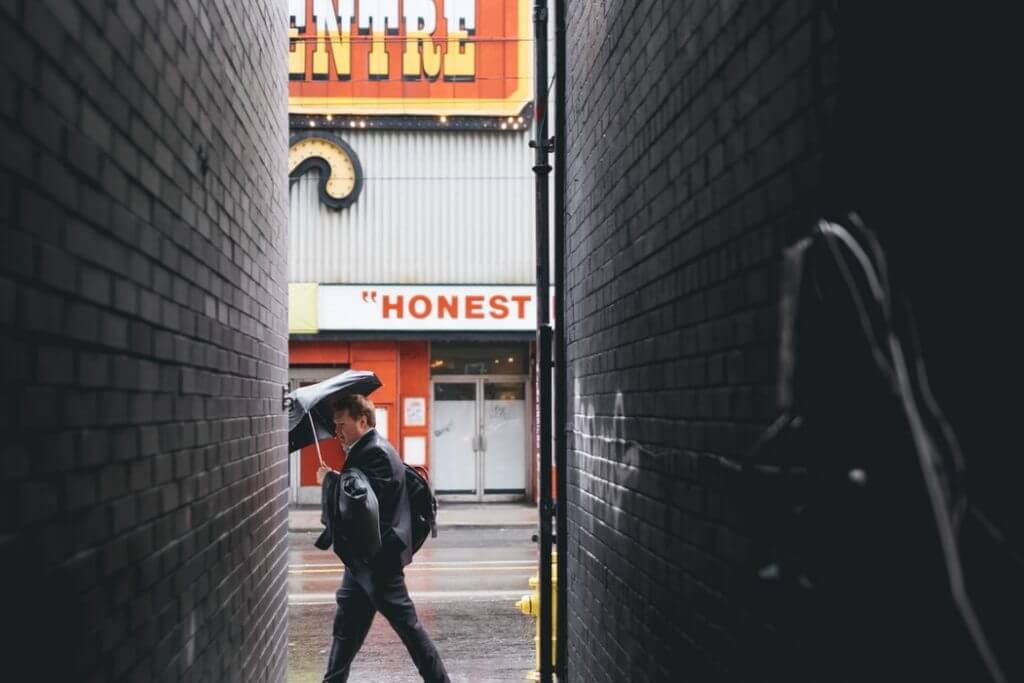
Excellent. Do you think that animals have consciousness? Humans have consciousness but what about animals?
I don’t know. When I think matters so much, people who are animal behaviorists indisputably have demonstrated that animals have consciousness, at least many, many animals have consciousness. They have a level of self-awareness. They certainly have the ability to feel pleasure and pain. The only difference between a cow’s consciousness and a dog’s consciousness are their ability to experience themselves as having lives that matter. The difference is not between these animals. It’s our perception that’s different. Our perception of cows and dogs is different. The animals themselves are really not that different in many ways.
One last question. Back to your origin story of how you ended up going down this path, you got quite sick from contaminated meat, was that salmonella?
It was campylobacter, which is similar to salmonella.
Okay. What I’ve understood is that there are potentially thousands of cows in one single burger because they use these huge vats so one contaminated animal can cause a huge epidemic, is that right?
I don’t know. I haven’t read up on the literature recently. When I wrote my book, it was seven years ago now. At that time, there were very high rate, to my knowledge, they have a chance of very high rates of contamination and lethal contamination, actually. Contamination that allowed to make it into a certain amount into the food supply.
Crazy what happens behind closed doors and what’s allowed. We’re out of time. We have for our listeners the carnism.org website for them to check out. I wrote a great Huffington Post article about you and about carnism. Any last words of wisdom that you want to share that we haven’t already discussed?
I think we covered it all. Thank you for your thought-provoking question.
Of course. First of all, thank you, Melanie, for sharing from your heart and from all this research. It’s your life’s work. It’s amazing what you’re doing in the world. Also, thank you, listeners, for listening all the way to the end. If you’re a meat-eater, I’m a meat eater because I still eat fish. It might be hard to take but at least you’ve educated yourself and created awareness. My hat’s off to you for that. I really appreciate your open-mindedness for listening all the way through to the end of this episode. We will catch you on the next episode of Get Yourself Optimized. This is your host, Stephan Spencer, signing off.
Important Links
- Carnism.org
- Facebook – Melanie Joy
- Twitter – Melanie Joy
- LinkedIn – Melanie Joy
- Why We Love Dogs, Eat Pigs, and Wear Cows
- How Not to Die
- Institute of Jainology
- Ahimsa Award
- Carnism
- Ag-gag laws
- Academy of Nutrition and Dietetics
Checklist of Actionable Takeaways










 About Dr. Melanie Joy
About Dr. Melanie Joy
Dr. Melanie Joy is a Harvard-educated psychologist, celebrated speaker, and author of the award-winning book Why We Love Dogs, Eat Pigs, and Wear Cows. Dr. Joy is the eighth recipient of the Institute of Jainology’s Ahimsa Award, which was previously awarded to Nelson Mandela and the Dalai Lama. Her work has been featured by numerous national and international media outlets, including the BBC, ABC Australia, NPR, and the New York Times. Dr. Joy has given her acclaimed carnism presentation on six continents, and the video of her recent TEDx talk on carnism is in the top 1% of the most-viewed TEDx talks of all time. She is also the founder and president of the charitable organization Beyond Carnism.
Disclaimer: The medical, fitness, psychological, mindset, lifestyle, and nutritional information provided on this website and through any materials, downloads, videos, webinars, podcasts, or emails is not intended to be a substitute for professional medical/fitness/nutritional advice, diagnoses, or treatment. Always seek the help of your physician, psychologist, psychiatrist, therapist, certified trainer, or dietitian with any questions regarding starting any new programs or treatments, or stopping any current programs or treatments. This website is for information purposes only, and the creators and editors, including Stephan Spencer, accept no liability for any injury or illness arising out of the use of the material contained herein, and make no warranty, express or implied, with respect to the contents of this website and affiliated materials.
LOVED THIS EPISODE
Please consider leaving me a review with Apple, Google or Spotify! It'll help folks discover this show and hopefully we can change more lives!
Rate and Review







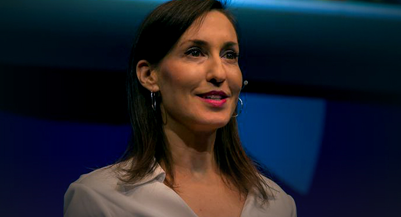
 About Dr. Melanie Joy
About Dr. Melanie Joy
